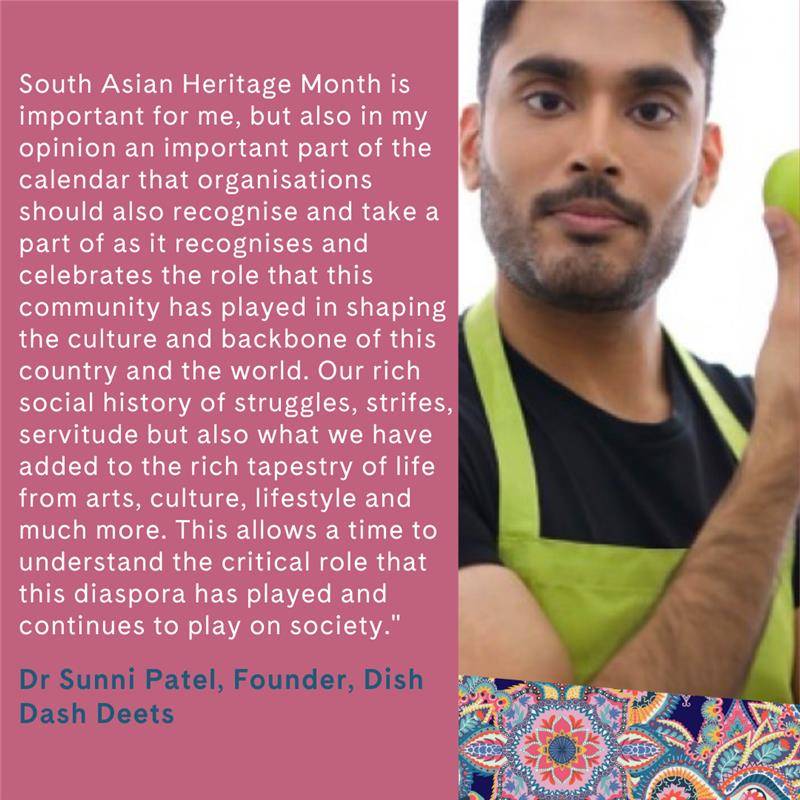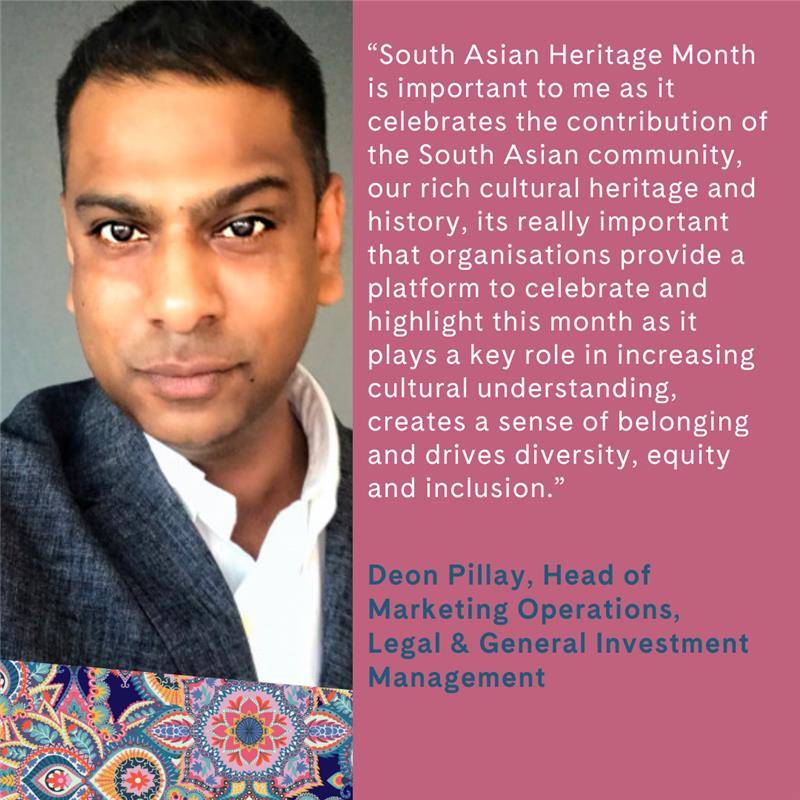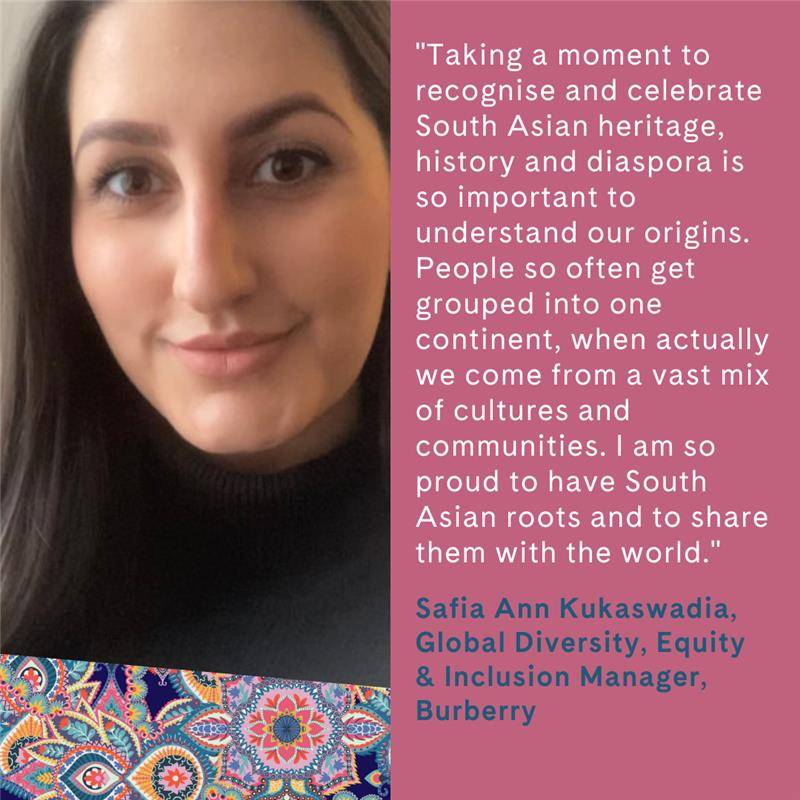South Asian Heritage Month: The Realities of Being South Asian & LGBTQ+
Culture
To mark the end of South Asian Heritage Month, celebrated annually in the UK between July 18 to August 17, myGwork asked some of its members what the month-long event means to them and explored the realities of being LGBTQ+ for South Asians.
Check out the full conversation here in the video below.
Deon Pillay, Head of Marketing Operations at Legal & General Investment Management said South Asian Heritage Month is important to him as “it celebrates the contribution of the South Asian community, our rich cultural heritage, and history, it’s really important that organizations provide a platform to celebrate and highlight this month as it plays a key role in increasing cultural understanding, creates a sense of belonging and drives diversity, equity, and inclusion.”
For Safia Ann Kukaswadia, the former Global Diversity, Equity, and Inclusion Manager, Burberry, “taking a moment to recognize and celebrate South Asian heritage, history, and diaspora is so important to understand our origins. People so often get grouped into one continent, when actually we come from a vast mix of cultures and communities. I am so proud to have South Asian roots and to share them with the world."
Dr. Sunni Patel, Founder of Dish Dash Deets, feels the same: “South Asian Heritage Month is important for me, but also in my opinion an important part of the calendar that organizations should also recognize and take a part of as it recognizes and celebrates the role that this community has played in shaping the culture and backbone of this country and the world. Our rich social history of struggles, strifes, servitude, but also what we have added to the rich tapestry of life from arts, culture, lifestyle, and much more. This allows a time to understand the critical role that this diaspora has played and continues to play on society.”

In support of South Asian Heritage Month, Paraxel International’s Associate Manager Snehal Shende, believes “becoming an ally for any human cause is our social and moral responsibility.” She also took part in WorkPride’s event this summer, focusing on South Asia, and the realities of being part of the LGBTQ+ community and belonging to ethnic minority group, with London Stock Exchange’s Vipul Bhatti, Vertex’s Suraj Bhanot, Netflix’s Sabir Khan, and Valtech’s Sheree Atcheson. The themes raised include why culture and religion is incredibly important for people from the Asian community, the intersectional challenges of being LGBTQ+ and South Asian in the UK, discrimination at work and within the LGBTQ+ community, and the mental health challenges they face.
The London Stock Exchange’s Vipal touched on the topic of “secrecy” around belonging to the LGBTQ+ community, which is common in Asian families and events. “There’s a whole kind of hiddenness and secrecy. And it impacts your mental health as you get older as you are reminded that you are different, especially around the topic of marriage,” noted Vipal. “Yes I am different and in my case, I am a gay man, but I don’t want to be a secret because why should I?”
Vipul admitted that he was recently on a mental health break from work, and highlighted how stereo typing and cultural traits, like being passive, or more quiet, can hold South Asian people back at work. But dealing with “my mental health challenges – in my brokenness – has actually helped me to find my inner voice and speak about it to share my experience,” he shared.

All the panelists also shared their intersectional experiences. “As a young kid, I hated being brown and post 9/11 I didn’t want to be Muslim. I didn’t want to be gay,” recalled Netflix’s Sabir. “But now I’ve kind of gone the other way around where I love being a person of color. I enjoy the ability have access to different cultures and be myself around my gay friends. Overall, I feel like I’m taking more ownership of my differences and playing with that a little bit more.”
Valtech’s Sheree said also she “really connected with the racism.” As someone with Sri Lankan heritage, “I faced a lot of racism growing up, and my brother face continues to face quite a lot more racism than me because he’s much darker skin than I am. When I’m in Ireland, even with my accent, the fact that I speak Irish, and I went Irish dancing and won competitions, and been raised by Irish people who adopted me and my brother, I’m still othered quite a lot, and often face questions like ‘but where are really from?’ or ‘where are your grandparents from?’”
Vertex’s Suraj highlighted why the “where are you really from?” question is triggering for many people from ethnic backgrounds. “Many people in London, for example, are not actually born here. But I was born here. It’s interesting because although you’re a Londoner, at the same time you’re also not.”

Panelists also touched on the racism within the LGBTQ+ community. “Often you think an LGBTQ+ space would be safe from discrimination. But when you’re a person of color or person from a different background that isn’t cisgendered and white, you automatically feel like you’re the odd one out,” highlighted Suraj. “LGBTQ+ spaces haven’t been built up with the entire community in mind. Being able to acknowledge that and feel that you have to make changes to your club or venue, to be more inclusive in itself is a really big step forward. So, LGBTQ+ venues have a lot to do to make sure that every person from the community feels welcome.”
All the panelists felt that corporate organizations and the LGBTQ+ community can do more to stamp out discrimination. “We can only create inclusive environments, by really, truly recognizing exclusion, and then utilizing the privilege that many of us have to change that for other people, both like us, and not like us,” shared Sheree.
It’s really important that employers and allies listen to diverse people with those lived experiences to become more inclusive. “Understanding that our lived experience in itself is really important,” highlighted Suraj. “If you don’t ask those questions, you’re not going to find the gaps in your offering. It’s really important to listen with open ears and not just tick the boxes and go through the motions. Companies don’t need to pay consultants a huge amount of money to get this information. If you set up an environment at work that is comfortable for them to be their authentic self, they will come to you and share their stories. At Vertex, for example, we have an Employee Resource Network advisory panel with employees from across the company of varying seniority who directly advise our leaders on DE&I policy.”

